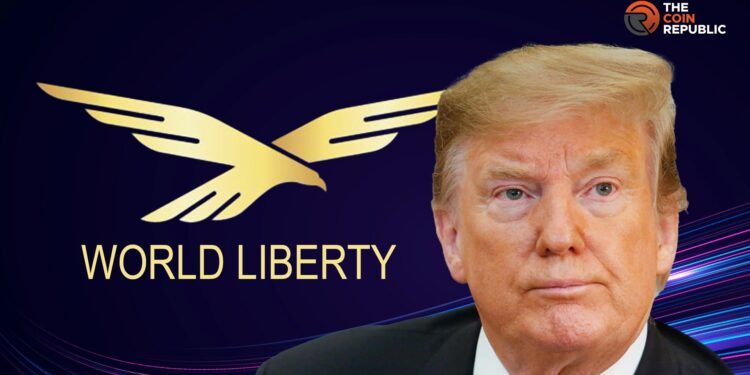Donald Trump has disclosed a $57 million windfall linked to crypto assets through a little-known financial firm called World Liberty Financial, further fuelling concerns about the former president’s growing entanglement with opaque digital markets and unregulated capital flows. The revelation comes from a recent financial disclosure filed as part of his 2024 presidential campaign requirements, and it has already triggered scrutiny from watchdogs and political opponents.
The disclosure, though legally required, provides few specifics. It lists the income as “licensing fees and holdings associated with crypto tokens” managed or facilitated by World Liberty Financial, a firm believed to be involved in high-yield blockchain investments and tokenised assets, but whose operational structure remains largely off the public radar. What is clear is that the amount—over $57 million in reported gains—is by far Trump’s largest single crypto-related transaction to date.
This development follows earlier disclosures showing Trump had earned millions through the sale and promotion of non-fungible tokens (NFTs) featuring his likeness. While initially mocked, those efforts now appear to be part of a larger, more strategic move into digital assets by the Trump financial orbit. Analysts say the former president has increasingly embraced cryptocurrency not just as an investment, but as a political symbol of resistance against federal oversight and monetary policy.
Critics are already questioning the origins and legality of the windfall. “When a former president receives tens of millions through barely-regulated crypto schemes linked to obscure firms, Americans deserve a clearer explanation,” said Norman Eisen, a former ethics lawyer under Barack Obama. Several Democratic lawmakers have called for a congressional review into whether the disclosures fully meet transparency standards and whether the crypto holdings present conflicts of interest in a potential second Trump administration.
For Trump’s supporters, however, the disclosure may only boost his appeal. Among his base, cryptocurrency is seen as a hedge against inflation, government control, and traditional financial institutions, many of which they distrust. Trump’s windfall, then, could be framed less as a liability and more as proof of business acumen and tech-savvy investment timing.
Yet the link to World Liberty Financial raises red flags. Little is publicly known about the firm beyond a few blockchain press releases and obscure filings. It is not registered with major US financial regulators, and its business model appears to rely heavily on speculative token issuance and marketing. There are also questions about whether any of its offerings were available to US investors without proper licensing, which could bring it into regulatory conflict with the Securities and Exchange Commission.
The news comes amid a broader Republican push to deregulate cryptocurrency markets. Trump has repeatedly criticised the Biden administration for what he calls “war on crypto,” and has promised a friendlier regulatory climate should he return to the White House. Some now worry that personal stakes in firms like World Liberty Financial could influence future policy decisions in a way that blends public power with private enrichment.
As Trump’s campaign ramps up, the intersection of crypto wealth, financial secrecy, and political ambition will likely remain under intense scrutiny. For now, the $57 million windfall stands as a potent symbol of both the enormous fortunes and the deep ambiguities that define the digital financial age—and the man who seeks to lead it once again.
newshub finance



Recent Comments